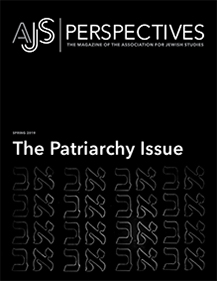
To: Wilhelm Marr
From: Georgina Bertha Callenbach
Hamburg, 15 May 1872
Lieber Wilhelm,
I’m outraged. I could not believe my ears when mother told me that she found those love letters you wrote to that ugly, insipid Helene Israel. But then I saw one of her silly, simpering missives to you and I could no longer deny it. I should have known that you might be so cruel! Ever since we first met, you have never stopped talking about Jewish girls, like the ones who brought you cakes to eat in primary school, or those snooty ones you met on your boat journey to Costa Rica. What did you love about them so much? It seems to me that your enchantment with Jewish women matches the intensity of your scorn for Jewish men. So what was your problem with me—was I not Jewish enough for you? Were you only interested in my father’s fortune? I wish I could have stood up for myself and refused to marry you. I suspected that we were not going to get along. But I could not face father’s disappointment. He relished anything he thought might distance himself from his own Jewish past, so he loved that I married you. And if we had not wed, what would my other choices have been? At least we never had children. Adieu and bonne chance! Please tell Helene that I am much better off without you.
Georgina
To: Georgina Bertha Callenbach
From: Helene Israel
Weimar, 15 March 1874
Liebe Georgina,
I deeply regret that Wilhelm and I began corresponding when you and he were still betrothed. And yet, perhaps you can understand that we did so only because we had found true love! Have you by any chance read the letters of Rahel Varnhagen?i She is a much better writer than I am and can say what she means better than I ever could: it is simply a double curse to be both a woman and a Jew. And yet, Willie truly loved me even though I had the misfortune to be Jewish, poor, and ugly. I was neither rich nor beautiful, like you—and he actually became less affluent when we married. You see, he is not a bad person. So I beseech that you neither condemn nor despise us!
Yours sincerely, Helene Israel
To: Wilhelm Marr
From: Jenny Kornick
Leipzig, 15 December 1874
Lieber Wilhelm,
I was profoundly moved to read “Too Happy,” the beautiful eulogy you wrote for your late wife in Gartenlaube.ii It exquisitely illuminated your true love for her, for which you have earned my deep admiration. I am also a writer and I believe we are kindred spirits. I would be honored by your reply.
Sincerely yours, Jenny Kornick
To: Wilhelm Marr
From: Jenny Kornick
Leipzig, 15 June 1878
Lieber Wilhelm,
Enough is enough.iii I cannot fathom why you wrote that your love for Helene exceeded your feelings for both Georgina and me because she was a “pure” Jewess and because “pure blood is always preferable to mixed blood!” At least now I have more insight into your true character. Damn you for convincing that fool Fritsch to give my Ozzie an ultimatum. You know how much I have always desired to write as a journalist! If I could have been employed elsewhere, I would have. As you well know, I was never particularly keen to write about antisemitism. But I would have done so in this case. I would have considered myself lucky to even be able to use my real name! So, damn you for subverting my chances, and also for spreading loathsome falsehoods about my character. Nobody pays attention anymore to your lengthy rants about Jews or about anything else, for that matter. Well, so much for your ultimatum anyway: Ozzie has chosen me over the editorship and has agreed to raise Heinzi. Your son shall forget your name and will know another man as his father.
Yours, Jenny
To: Georgina Bertha Callenbach
From: Jenny Kornick
Leipzig, 15 December 1882
Liebe Georgina,
My name is Jenny Kornick. Like you, I was divorced from Wilhelm Marr after an unhappy marriage. I am thinking about writing an article about the women in Wilhelm’s life for Auf der Höhe, the journal edited by Leopold von Sacher-Masoch, although I fear he may not be particularly enthusiastic about the idea for reasons I would rather explain in person.iv Would you be willing to meet with me?
I look forward to hearing from you.
Sincerely yours, Jenny Kornick
i Rahel Varnhagen (1771–1833), writer and salon host, converted to Christianity in 1814. She is known for her letters, published in 1861, in which she discusses the limitations of being both a Jew and a woman.
ii Marr was inconsolable when Helene Sophia Emma Maria Behrend née Israel died. He published a eulogy soon thereafter, to which many women responded with letters, including Jenny Therese Kornick, who was already divorced by that time.
iii Kornick married Marr in 1875; their son Heinz was born in 1876. Their marriage was unhappy and they divorced in 1877. She then married Oswald Zimmermann, another antisemitic journalist. Marr became jealous that Zimmermann was appointed editor of the newspaper Antisemitische Correspondenz and that he planned to hire Jenny as a journalist. To retaliate, Marr convinced Fritsch, the newspaper’s owner, that Jenny was a promiscuous woman who did not dress appropriately and that Oswald should be fired if he allowed her to contribute.
iv Kornick was at one time the lover of Leopold Sacher-Masoch (1836–95), who is best known for his erotic novels. Auf der Höhe (1881–85) featured articles on liberal topics including women’s emancipation. Kornick published at least one article in the journal, but it was unrelated to Marr or his wives. She and Zimmermann later denounced the journal as anti-German and philosemitic, leading to its demise.

